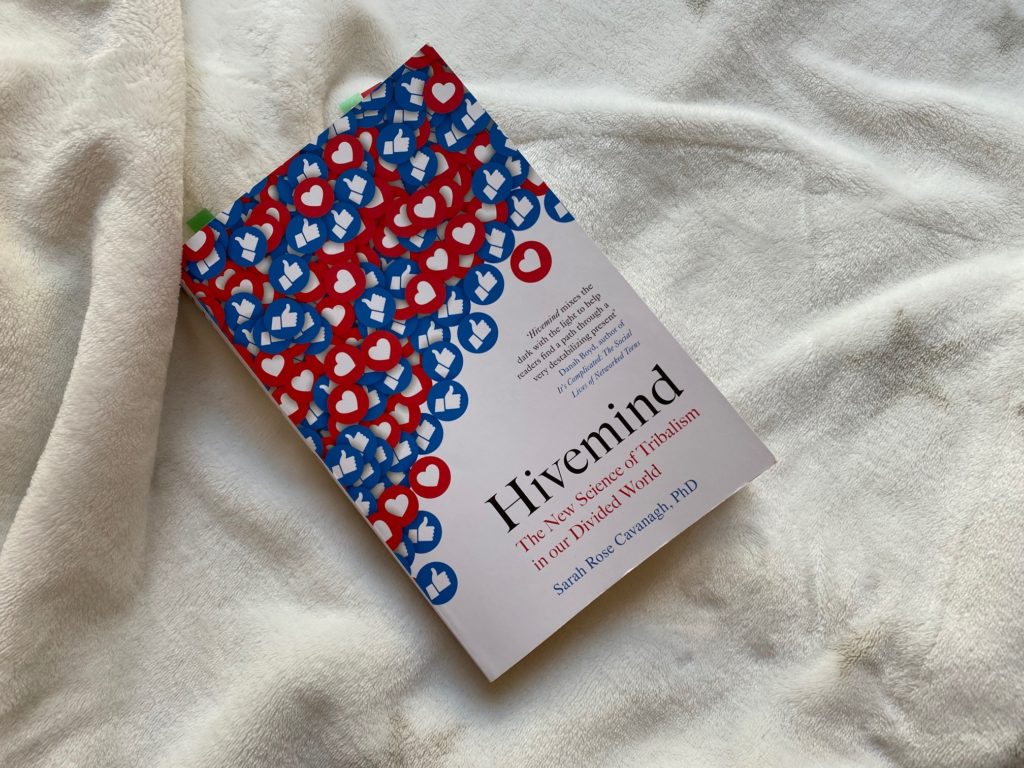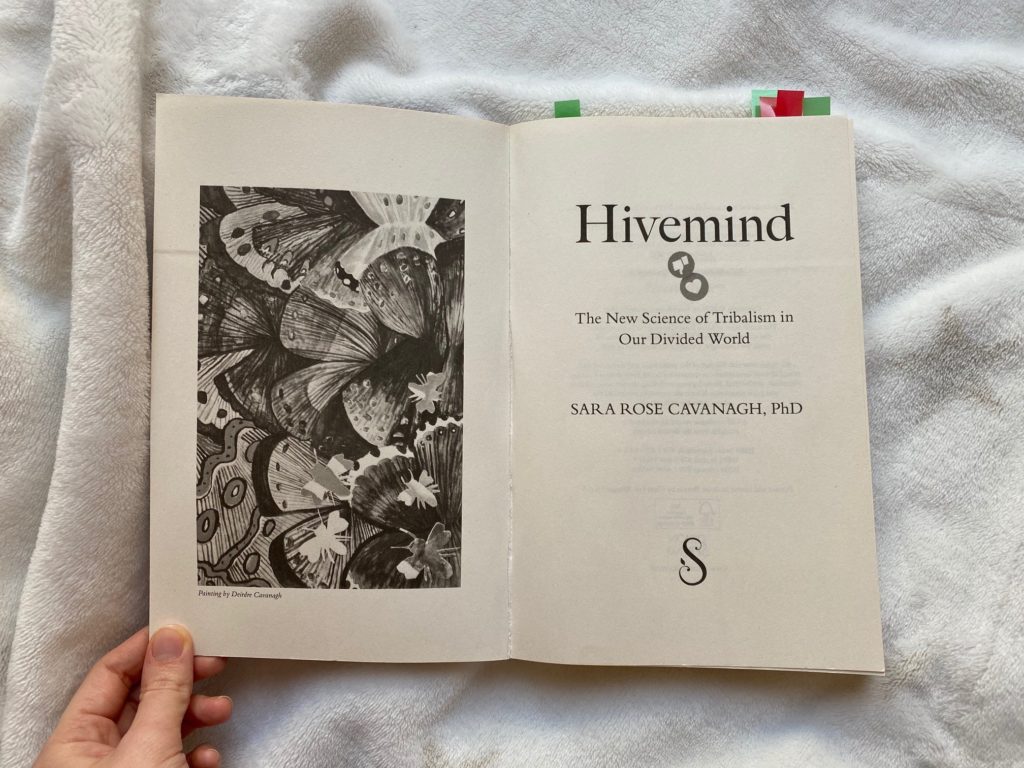A Psychologist’s Take on Hivemind
Book review – Hivemind: The New Science of Tribalism in Our Divided World

Overall rating: 3/5
Review summary: Easy to get through and overall interesting. Discusses some very current and important topics and highlights how the society we’ve built is working against our social nature, making us more lonely and decreasing our sense of purpose and well-being.
Ideal for: Great for anyone interested in social psychology or anthropology, though I would not recommend it as much to those with extensive existing knowledge, as a fair share of the book is dedicated to explaining basic concepts/theories.
Key topics: Social media, tribalism, social nature, happiness, mental health
Human beings are fundamentally social
Sarah starts the book off by drawing the comparison between humans and bees, which sets out the tone for the rest of the book (hence the title).
While our current society tends to glorify our individuality and our rational, cognitive and independent nature, research shows that we are fundamentally social beings. We get our greatest sense of pleasure and purpose when working with others towards a common goal; we feel happiest when we are surrounded by those we love; and we even feel less physical pain when someone dear to us is standing by our side, holding our hand.
One of the supporting theories Sarah cites here is Jim Coan’s Social Baseline Theory, which I’ve always found fascinating. It argues that human beings evolved to be together, not alone, exhibited in studies showing that when people reach a certain level of familiarity with others, their neurons no longer know the difference between themselves and the people close to them. They literally become a part of who they are.
Social media might not be to blame for our loneliness
The book presents a strong argument for why social media is not inherently evil, or even bad, and Sarah gives us some ideas of what types of social media usage are better than others. For instance, silently lurking around the Instagram profile of your ex’s new partner is unlikely to increase your happiness levels, while using Instagram to stay in touch with your friends living abroad definitely could. According to the book, a certain degree of fear of new technology and its consequences has been present since, well, the first new technology was invented. So, just like newspapers haven’t ruined our ability to connect with others, there is no reason to believe social media will.
An interesting take-away from this section for me was that those that have the best outcomes in regard to social media are those that use it moderately and are actively participating. Apparently, the years I’ve spent silently browsing social media would have been better spent posting an occasional selfie and dropping a heart emoji or two in my friend’s comment sections… who knew.
We’re building a world that is making us unhappy
For me, the key takeaway from this book is that human beings are collective creatures that thrive when they are surrounded by others and working towards a common goal. A massive problem, however, is that our society is increasingly placing less emphasis on collective efforts, and more and more on individual ones. This is causing an increase in mental health problems and an overall reduction in our well being and happiness.
Research that Sarah cites points to the idea that people feel the greatest sense of community and purpose during times of natural disasters. While we can achieve some of this sense in our everyday lives through our own efforts, by how we choose to live our lives and the people we surround ourselves with, a significant part our experience is influenced by our environment. Is it not about time that we try and create a society where feeling a sense of belonging and purpose is a standard, not something we only really feel when the world is falling apart?

Great summary. Keep posting reviews.